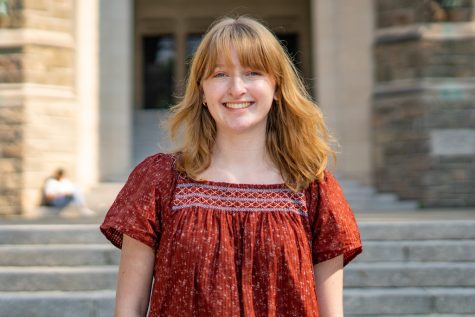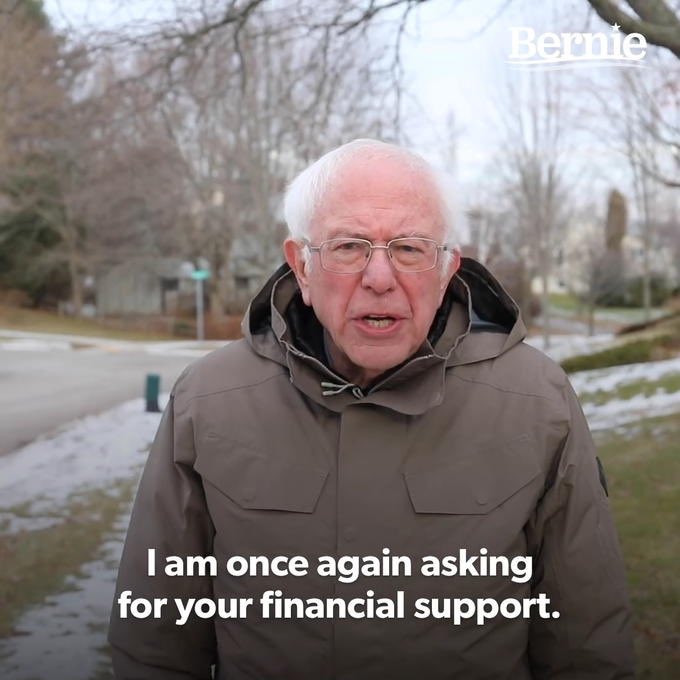Increasing Campaign Spending Limits Presidential Possibilities
Money makes the world go round. It is a thought that most Americans tend to push aside. We don’t want to think of greed or gluttony, and we also don’t want to think of ourselves as a materialistic society. However, the aspect of fundraising when it comes to the upcoming presidential election evokes questions of the importance of money when it comes to a candidate’s chance of success.
There seems to be little evidence pointing towards the fact that more money leads to more votes, especially with the infamous amount of money spent by Mike Bloomberg during his short-lived primary run. Out of all 12 of the presidential candidates (including President Donald Trump), Bloomberg far surpassed them in the amount spent on campaign funding, with his numbers coming out to an outrageous $466,586,616 spent in February of 2020. This number only becomes more substantial when compared to Bernie Sanders, who spent the second-highest amount of money on campaign funding in February with a total of $45,799,973, less than 10% of what Bloomberg spent.
Bloomberg, similarly to Trump in his 2016 presidential run, boasted of his ability to support himself during his campaign with his own financial earnings, much of which he earned through his media company Bloomberg L.P. In fact, 0% of Bloomberg’s funding came from individual contributions. Although Bloomberg seemed proud of the fact that he did not have to rely on the public’s monetary support for his campaign, it turned out that he probably would not have been able to survive in the campaign as long as he did without his riches, seeing as he became an increasingly unpopular candidate amongst the public. He seemed to offend Americans, with the allegations that he ran a toxic company and his blatant attempts to throw money at the campaign instead of putting in personal effort.
Although the amount of money a candidate has certainly does not provide a direct correlation to voter popularity, as Bloomberg proved, campaign funding is still an extremely important aspect of the race towards the presidency. Presidential candidates continue to attempt to use the media to their advantage by running commercials, which proves to be an ever-expanding black hole into which candidates can toss their millions. Multiple candidates have utilized this tactic, such as Sanders, whose video enticing viewers to donate by earnestly saying, “I am once again asking for your financial support” went viral and launched a tidal wave of memes imitating the Democratic candidate. Bloomberg, on the other hand, only worsened his campaign with his use of the media, making himself out to be a lazy candidate who believed throwing his money around would secure him the presidential nomination.
Although this spending can seem out of hand, there are laws in place that attempt to limit the extent of presidential campaign funding. For example, candidates that receive primary matching funds from the government are required to limit their funding for primary elections to $10 million, limit campaign spending to $200,000 per state (or to a different amount based on the number of individuals in the state who are eligible to vote) and limit spending from personal funds to $50,000. However, each of these numbers is added to a cost-of-living adjustment (COLA), making it so that the limits put in place can vary significantly from their original amount. There are also other laws in place that attempt to manage campaign spending, such as mandatory audits by the Federal Election Commission.
Campaign spending is still quite obviously over-the-top. Bloomberg was the perfect display of an extreme waste of money, with his excess of wealth doing nothing to help his attempts at grasping the position of the presidency. Unfortunately, his campaign acts as a warning towards the direction our elections are headed in. Money has become not only an important factor during an individual’s campaign, but a necessity. Although we may proclaim it, it is not the case that anyone in America can run for president. There are fees that need to be paid, countless staff that must be employed, media payments that must be fulfilled and so on. The expense continues to grow year after year, and although more money does not necessarily equate to more votes, there is a financial baseline that needs to be met, and it is one that seems unattainable to the average American citizen.
The intentions of the first Americans to create a wholly equal society where anyone can lead has not exactly panned out. Sure, we are much better off than plenty of other places around the world. We can vote for our president. We can speak out and ask for our needs to be met. We can educate ourselves on the state of our nation. But can each little girl or boy who wants to be president honestly be told by their parents that they “can do anything they set their mind to”? Not really. At least, not without a few million dollars in their back pocket.
Taylor Herzlich, GSB ’23, is a business administration major from Mt. Sinai, N.Y.

Taylor Herzlich is a senior at Fordham College at Rose Hill. She is majoring in journalism with a minor in English. Taylor started writing for the Ram...










































































































































































































